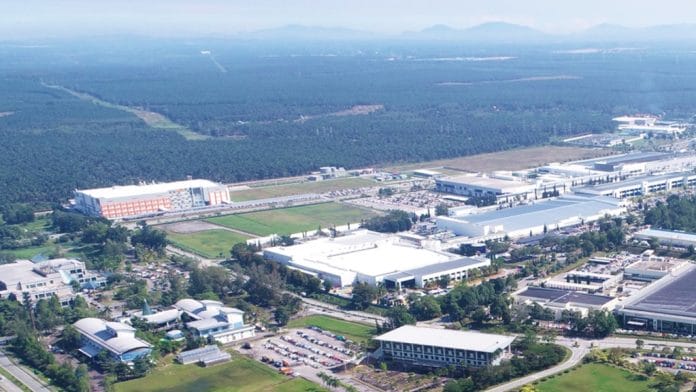In global economics, the concept of foreign investment often carries a dual narrative. On one hand, it is hailed as a catalyst for growth, injecting capital, expertise, and technology into domestic economies. On the other hand, skeptics argue that heavy reliance on foreign investment can undermine a nation’s economic sovereignty, leading to a drain of resources and talent. For Malaysia, a nation with a rich tapestry of culture and potential, the debate surrounding foreign investment has never been more pertinent. As the nation navigates its path toward economic prosperity, it is imperative to critically evaluate the role of foreign investment and its implications for Malaysia’s future.
Over the past few decades, Malaysia has emerged as a vibrant player in the global economy, attracting significant foreign investment across various sectors. This influx of capital has undoubtedly fueled growth, contributing to the nation’s development and infrastructure. However, the question arises: at what cost? While foreign investment may seem like a boon in the short term, there are inherent risks associated with overreliance on external funding.
One of the primary concerns is the potential depletion of the Malaysian ringgit. When a huge portion of the economy is fueled by foreign investment, the stability of the domestic currency becomes vulnerable to external shocks. Fluctuations in global markets, geopolitical tensions, or changes in investor sentiment can trigger capital outflows, putting pressure on the Malaysian ringgit and disrupting the economy. In such scenarios, the nation’s ability to maintain monetary sovereignty and implement effective fiscal policies is compromised, further exacerbating economic instability.
Moreover, heavy dependence on foreign investment can lead to a brain drain, where local talent seeks opportunities abroad. While foreign companies may bring in expertise and technology, they often prioritize their interests, potentially marginalizing local talent, and stifling innovation. This brain drain not only deprives Malaysia of its brightest minds but also hampers the long-term sustainability of its economy. A nation can only thrive when it nurtures and retains its intellectual capital, fostering a conducive environment for creativity and entrepreneurship to flourish.
Furthermore, the notion of economic independence is intrinsically linked to the mindset of a nation. Malaysia cannot aspire to be the tiger of ASEAN if it remains overly reliant on foreign investment. True economic independence necessitates a shift in mindset – a departure from the dependency syndrome towards self-reliance and innovation. It requires a concerted effort to harness the nation’s inherent strengths, invest in human capital, and foster a culture of entrepreneurship. By empowering local businesses and creating an ecosystem conducive to growth, Malaysia can chart its course toward prosperity, free from the constraints of external influences.
To achieve this vision, policymakers must prioritize initiatives that promote domestic investment, nurture local talent, and enhance competitiveness. This entails creating a conducive regulatory environment, reducing bureaucratic hurdles, and providing incentives for homegrown enterprises. Additionally, investing in education and skills development is paramount to equipping the workforce with the tools needed to thrive in a rapidly evolving global economy. By fostering a lifelong learning and innovation culture, Malaysia can unlock its full potential and emerge as a beacon of economic resilience in the ASEAN region.
However, transitioning towards economic independence is not without its challenges. It requires bold leadership, strategic vision, and a willingness to embrace change. Policymakers must be willing to confront vested interests and implement structural reforms that may be met with resistance. Moreover, fostering a sense of national pride and unity is essential in galvanizing the populace toward a common goal. It requires fostering a sense of ownership and agency among Malaysians, empowering them to take charge of their economic destiny.
In conclusion, while foreign investment can play a role in Malaysia’s economic development, it should not come at the expense of the nation’s sovereignty and long-term prosperity. To truly thrive globally, Malaysia must chart its path towards economic independence, leveraging its inherent strengths and nurturing local talent as well leader in capitalizing on its resources rather than be subjected by foreign companies. Wake up, we have the talent, technology, and resources. By embracing innovation, fostering entrepreneurship, and investing in human capital, Malaysia can redefine its role as a dynamic powerhouse in the ASEAN region. The time to act is now – for the future of Malaysia depends on the choices we make today.
By Ts. Dr. Hj. Muhammad Khusairy Bin Capt. Hj. Bakri, a Postdoctoral Research Associate at the Composite Materials and Engineering Center, Washington State University (WSU), and a Lead Research and Development Sector of the Association of Professional Technicians and Technologists (APTT) Sarawak, and Ahmad Faisal Bin Mahdi is a Senior Lecturer at the Faculty of Business and Management, Universiti Teknologi MARA (UiTM), a Chartered Institute of Marketing member









